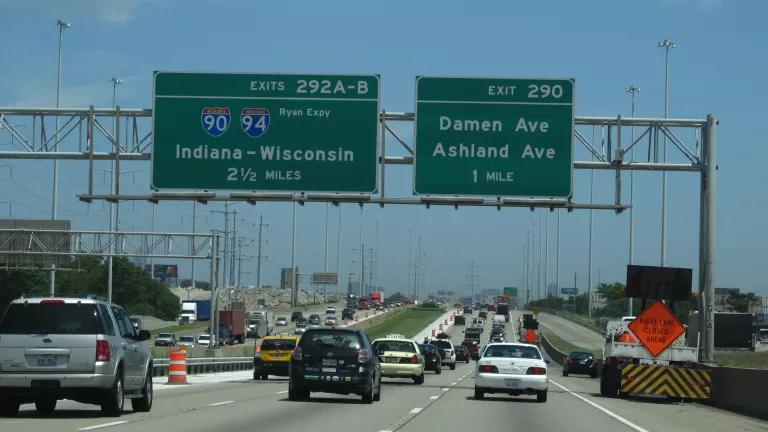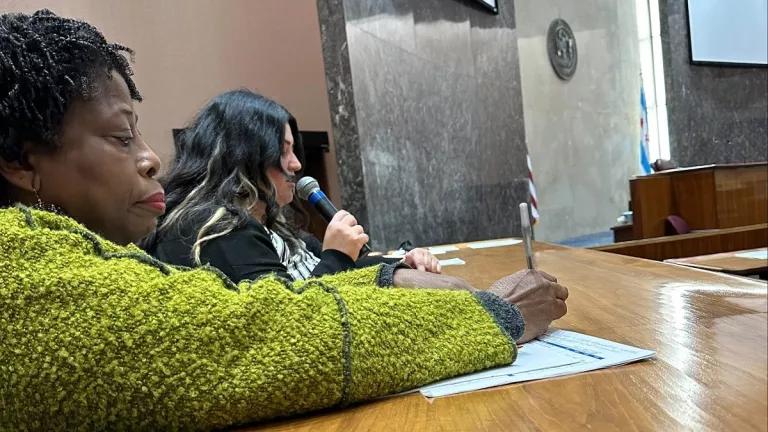Prioritize Environmental Justice in Chicago
We need a real commitment to ensure that environmental racism will not be tolerated in Chicago.

Chicago City Hall
We need a real commitment to ensure that environmental racism will not be tolerated in Chicago.
Chicago has an environmental racism crisis that must be addressed at every level of government, starting at the city level. Low-income communities of color in our city are disproportionately affected by polluted air, water, and soil. These environmental justice (EJ) communities experience a host of overlapping stressors that have an adverse effect on our health and well-being.
This is not new. It’s been happening for decades. Nor is it mere chance—this concentration of burdens is the result of intentional policies, like the city’s choices about how to manage land uses. And these disparities are not “just” an environmental issue; they’re a civil rights issue.
In the city of Chicago, the analysis we conducted highlighted communities in the west, southwest, and southeast as areas experiencing high cumulative burdens and vulnerabilities as a result of industrial pollution, truck traffic, other environmental stressors, and socioeconomic disadvantage.
Affluent neighborhoods are shedding whatever industry is left and booming with sustainable developments while communities of color continue to get dumped with more dirty industry.
EJ advocates urge the city to address cumulative impacts by placing restrictions on permitting new pollution sources or renewing permits for existing facilities in areas that are already overburdened. We need to reduce pollution and increase environmental goods, such as green spaces and green infrastructure.
Additional measures for tackling cumulative impacts should include:
- Land use and public health reforms to address the industrial facilities, diesel truck traffic, hazardous materials, noxious odors, and other environmental hazards that are located immediately adjacent to parks, schools, and residential neighborhoods;
- Targeted environmental monitoring in the most vulnerable communities;
- Actual enforcement of the laws that are on the books while also holding industry accountable;
- Investment in environmental and public health research, focusing on areas flagged as disproportionately burdened;
- Increased public health resources and assessments;
- More city interagency coordination;
- Re-establishment of the Department of Environment, ensuring that it has decision-making and enforcement power; and lastly,
- Commitments on all of these things as part of a good-faith proposal to address the General Iron HUD complaint.
One possibility for implementing all or a subset of these policies is through the creation of special zoning districts known as overlay and green zones, where reducing cumulative impacts and addressing environmental justice can help control pollution and encourage economic development.
Overall, we need a real commitment to ensure that environmental racism will not be tolerated in Chicago.




